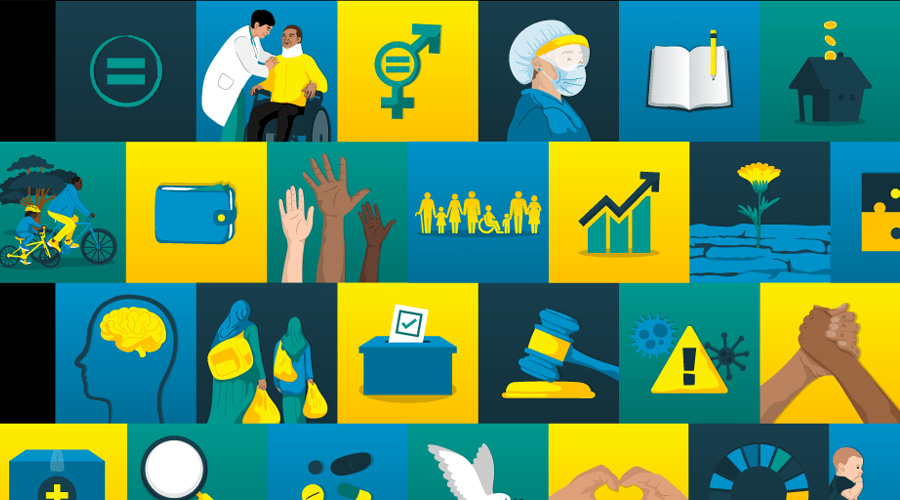
How beneficially metaverse could (or could not) transform healthcare
If you’ve browsed the net in the final couple of months, the term ‘metaverse’ is in all likelihood to be thrown at you at least a minimum once. Facebook rebranded itself after the idea and different corporations are adopting the metaverse with their spin; betting closely that it’ll be the next new release of the net in which we can work and play alike. As healthcare increasingly incorporates an online segment in the virtual fitness era and health data, one cannot assist but wonder how – or maybe if – this touted future of the net will affect this sphere. As such, we are determined to step into the metaverse and contemplate how it can factor in healthcare. Big tech is coming with various forms of metaverse that it is not speaking to each other. VR is the latest form in metaverse which help it to implement it effectively.
Metaverse stands for
This is a difficult query as there is not a trendy consensus on the definition of the metaverse. Microsoft calls it “a persistent digital world this is inhabited through virtual twins of human beings, places, and things”; while Mark Zuckerberg says that in the metaverse, “you’ll be capable of doing almost anything you could imagine”. The term ‘metaverse’ itself isn’t new. It changed into first coined by creator Neal Stephenson in his classic sci-fi book Snow Crash published in 1992.
In it, the Metaverse represents a virtual reality (VR)-based successor to the net which is populated through users’ digital avatars. There were different depictions of such a web successor which include the OASIS in Ready Player One; however, they are comparable in that they represent a new, extra interactive manner for people to engage online in a thriving, VR-enabled digital world with its economy and communities.
What the metaverse would look like in a healthcare surroundings
Traditional get right of entry to the metaverse has been depicted via a VR headset; and that is exactly what Meta envisions with its rebranded Meta Quest arm, which develops VR hardware and software. Going via way of means of VR alone, the method holds top-notch potential in healthcare. There is a developing range of research that already factor VR as being a beneficial, drug-loose opportunity for healing pathways, whether it’s in decreasing post-surgical pain, making childbirth much less painful, or treating phobias.
However, that is special from the idea of the metaverse. In the latter, in place of the usage of a VR headset simplest for therapy, one might meet their therapist via the tool as a virtual avatar; have their session held in a digital office, and might even head to a digital pharmacy to reserve their prescription medicine (or VR app). Following that, they could meet up with fellow patient communities to share, their avatar form, and their remedy progress; and speak about new developments pertinent to their ailments.
This gives a case to enhance the person’s enjoyment as compared to online patient boards or modern-day telemedical visits which occur via a flat-screen. As such visits have emerged as commonplace, equipping them with a higher interface ought to lure healthcare carriers to increase their offerings to the metaverse.
Moreover, with the interconnectedness that appears to be integral to this “new internet”, a patient’s virtual avatar will convey their virtual clinical records amassed from direct-to-client offerings and wearables – basically, any virtual records – and might extra easily share them to their physician in the healthcare metaverse.
Is providing healthcare in the metaverse realistic?
As engaging as the prospect of extending healthcare to the metaverse sounds, we need to recollect its feasibility. The sheer volume of personal fitness data that will be concerned represents a protection and privacy concern. One era that has been touted to deal with such worries is blockchain.
Companies like BurstIQ are already leveraging this era to help healthcare institutions in addressing healthcare issues including risk assessment, patient engagement, and steady dealing with personal health data. Having an obvious technique for dealing with such sensitive information can assist build belief for patients to go to the metaverse for scientific purposes. However, imposing this technique will constitute a challenge of its own. Current metaverse contenders like Fortnight and Roblox aren’t interoperable, nor are Meta’s Horizon Worlds with Microsoft’s Mesh.
Given how healthcare and digital health systems have a notorious legacy of interoperability issues, questioning that the metaverse will take the ones woes away is probably a pipedream. Already we’re seeing separate visions and different variations of the metaverse from Big Tech that don’t speak with each other, main us suppose in terms of ‘metaverses’ in place of a single interoperable metaverse. These logistics issues can’t be taken lightly, specifically when it comes to healthcare.



















